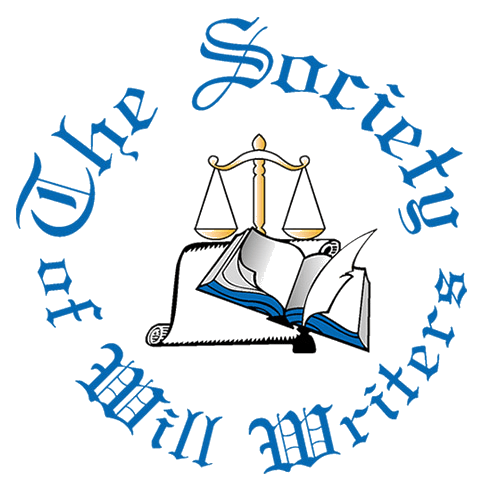Frequently Asked Questions
Introduction to Estate Planning
Estate Planning is a crucial process for any individual, no matter who they are. Everyone should plan for the worst-case scenario, as there is no way to know what is going to happen in the future.
There are many different components to Estate Planning. The main element, and that which is the first thought for many people, is a Will. An individual’s Last Will and Testament - to give its full name - is a vital component for everyone as it ensures that when the inevitable happens, the deceased's assets are shared out as they wish.
However, there are also other components to Estate Planning, and ones which many people do not think about. There is a need to plan for what may happen if you are incapacitated or seriously ill; in these circumstances, it is essential that someone is making effective decisions on your behalf and decisions that you would agree with.
Why everyone should plan for the future
It is crucial to put in place an effective structuring of your affairs for after you have gone.
Specifically, there is a need to ensure you have a well written Will, which properly represents your wishes. If anyone dies without a Will, they are considered to die intestate. This means that the individual’s assets will be distributed in accordance with legal principles, that may not be appropriate for your circumstances. In many cases this may mean your spouse or children, other family members or loved ones may or may not receive your estate fully or in part. This is because the intestacy laws are very old and so make a number of assumptions about people's marital and other relationships, that might not be accurate or relevant to your own situation. By making a Will, you are able to make important and personal decisions about who will receive what. This allows you to determine that certain people are taken care of.
In essence, Wills and Trust Planning are critical to allow every individual to ensure that those important to them are protected after they are no longer around. If your circumstances are contentious, life-time Trust Planning may also be of interest to you.
Estate Planning can also protect you and alleviate difficulties if you are unfortunately incapacitated and unable to make decisions for yourself. You will be able to rely on someone whom you trust to make these decisions, rather than leaving it in the hands of a person unknown to you or the authorities.
Making your Last Will and Testament
Making a Will is the most common way to ensure that all of your wishes are carried out after you have died. It can prevent your estate from falling into the hands of people whom you may not have wished it to.
Writing up a Will prevents most disputes over entitlement. If you have made a Will, it is clear to everyone what you intended.
If you are single, you may want your estate to be divided amongst friends, relatives or charities. You will also be able to decide what specifically goes to whom.
If you are married or in a relationship, your other half may not always get everything... siblings, parents, step children or other relatives may have a claim. If you are in a long-term relationship but not married then, without a Will, your partner may not have a claim to your estate.
If you are retired, you may already have made a Will, some time ago and it may need updating due to changing relationships with others or unforeseen circumstances.
In some cases - specifically with spouses - there will be a possibility of having a pair of mirror Wills prepared. This means that the Wills which are drafted contain similar clauses, merely the testators’ names are different.
Lasting Powers of Attorney
A Property and Financial Affairs Lasting Power of Attorney allows for you to plan ahead, choosing a person or a number of people that you trust to make decisions and take appropriate action on your behalf should you become incapacitated. It gives you reassurance that your finances and affairs will be handled appropriately.An attorney is the person whom you appoint to look after your affairs. Your attorney can manage your finances and property whilst you have capacity as well as when you lack capacity. For example, it may be easier for you to give someone the power to carry out tasks such as paying bills. It is possible for you to decide what power,and the extent of that power, which you wish to give your attorneys when making decisions surrounding your property and/or finances. You may make express conditions which your attorney has to meet.
This type of LPA does not allow your attorney to make decisions on personal welfare. That must be dealt with by the creation of a separate LPA. A Health and Welfare Lasting Power of Attorney is something which you entrust to those closest to you. It is paramount that the people you entrust with the responsibility of your welfare are able to carry out this duty unhindered. The attorneys that you appoint for this will only be able to act once the LPA is registered, and only when you are no longer able to make the required decisions for yourself. You can decide to give your attorneys the power to make decisions about any or all of your personal welfare matters, including healthcare matters. For instance, this could involve:
Giving or refusing consent for certain healthcare, liaison with Social Services, Doctors, and Occupational Health. Whether you continue to live in your own home or perhaps have support from Social Services, or whether residential care is more appropriate.
It is possible for you to give your attorney the power to make decisions on life-sustaining treatment. However, this must be dealt with specifically. Attorneys may also be given the power to make decisions about day-to-day aspects of your welfare such as diet, dress or daily routine.
Costs
If you don’t have an LPA and you lose capacity, it would be necessary for your family to attempt a Deputyship Order from the courts. If provided, the Order would only give limited powers and could cost your family within excess of £3,000.00 plus annual fees.
The Office of the Public Guardian currently charges £82.00 for registration of each LPA. VAT is not applicable. For our other costs, please click here.
There are reductions and exemptions available depending upon circumstances. We will advise you about this if we feel that your circumstances warrant applying for a reduction or exemption.
In the case of an LPA being rejected by The Office of the Public Guardian, a re-application fee is likely to be requested and this can vary.
The costs incurred for registration of an LPA at The Office of the Public Guardian are beyond our control.


